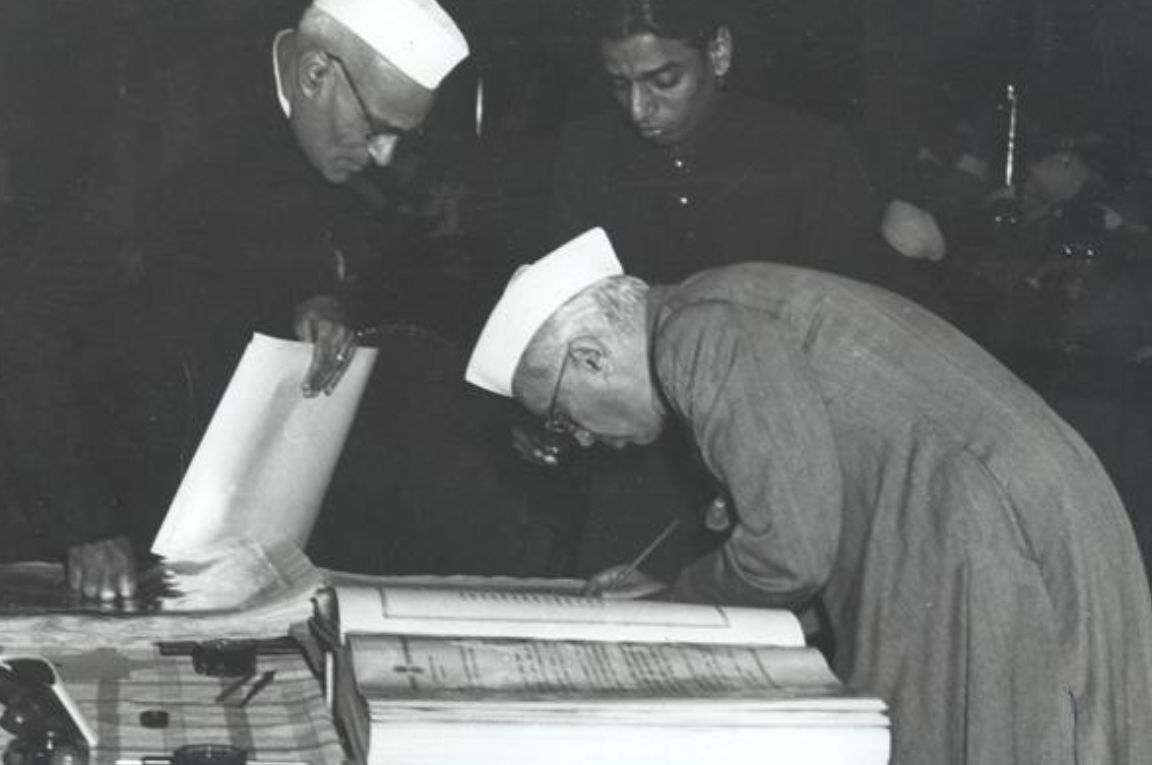What is FCRA and why is it important?
Foreign Contribution (Regulation) Act, or FCRA, is an act in the Indian Constitution, the purpose of which is to regulate the acceptance and utilisation of foreign contribution or foreign hospitality1 by certain individuals or associations or companies and to prohibit acceptance and utilisation of foreign contribution or foreign hospitality for any activities detrimental to the national interest and for matters connected therewith or incidental thereto.
Simply put, FCRA regulates the inflow of foreign contributions or aid to India. The law is enforced by the Ministry of Home Affairs.
The intention behind this act is to prevent foreign organisations from dominating—or even influencing—social, political, economic, and religious discussions in India. Examples of such influence are: religious groups carrying out conversion programmes in India, or organisations funding Indian activists protesting against large dams or nuclear plants.

FCRA prohibits certain individuals and organisations from accepting any foreign contribution. These include political parties, government employees, print or visual media outlets, and so on. Companies that are allowed to receive foreign funds can only do so after obtaining a registration.
It is important to note here that foreign money that flows into the country as payment for goods or services to Indian businesses is outside the purview of FCRA.
What is the history behind it?
FCRA was first passed in 1976 after a controversy over the possible use of foreign funds in parliamentary elections. The original act allowed nonprofits to freely receive foreign donations, although they were required to report the amount received and spent each year.
In 1984, the law was amended to regulate flow of funds to nonprofits more closely. They were now required to register before receiving any foreign donations. They could also not pass on that money to other nonprofits who weren’t registered. These modifications were made because of the government’s perception that some of these organisations were being used by foreign players to channelise funds to political parties.
About 20 years later, the government started the process of re-drafting the FCRA, to plug some gaps in the original bill. The Foreign Contribution (Regulation) Act, 2010—which is in effect now—was adopted in May 2011. There are several new provisions and rules in the new act. For instance, the 1976 Act only covered newspapers when it spoke of media outlets. But the 2010 Act mentions newer forms of media, such as television and the internet. It also disallows the use of foreign contributions to cover more than 50 percent of the administrative cost of any organisation.How does FCRA affect Indian nonprofits?
After the 1984 amendment to FCRA, the act is now perceived as a law focusing on nonprofits. While this may not have been the specific intention of the amendment, or of the new 2010 Act, the FCRA department does spend a large portion of its time dealing with nonprofits.
FCRA says that an organisation engaging in definite cultural, economic, educational, religious, or social activities can accept foreign contributions, only after it obtains a certificate of registration from the central government. Each nonprofit is also assigned an FCRA registration number. In 2015-16, there were 23,802 FCRA-registered nonprofits in India.
Almost all the work done by nonprofits in India falls in one of the five categories listed above. However, certain areas have not been listed, such as health, sports, or science. It is unclear whether FCRA applies to nonprofits working in these and other unlisted areas.
Another way that FCRA affects nonprofits is by requiring them to file annual returns. An organisation that has been permitted to accept foreign donations needs to maintain separate accounts for foreign contributions. They have to submit an annual return, certified by a chartered accountant, giving details of the receipt and purpose-wise utilisation of foreign contribution.
An organisation that does not file annual returns might face a penalty, or cancellation of registration.Who is eligible to get an FCRA certificate?
A nonprofit must meet the following criteria to be eligible for an FCRA certificate:
1. The organisation must be registered under an existing Act of the Indian Constitution, such as the Societies Registration Act, Companies Act, or as a public charitable trust.
2. It must be in existence for at least three years.
3. In those three years, it must have undertaken activities in its chosen field for the benefit of society, for which it seeks foreign contribution.
4. The organisation must have spent at least INR 10 lakhs towards its aim. This is excluding administrative expenses.
Picture courtesy: Wikimedia CommonsWhat is the actual process of getting an FCRA certificate?
Sanjay Agarwal, author of AccountAble Handbook FCRA 2010, and Principal at Sanjay Aditya says:
“To get the FCRA registration certificate, one has to apply online by filling form FC-3 at fcraonline.nic.in. There is a list of documents which need to be attached, and a fee that needs to be paid online. The site has a tutorial on how to fill up the form.
Soon after, the Local Intelligence Unit (LIU) of the FCRA department contacts the nonprofit and conducts a field enquiry and interview. This usually happens within 1-4 weeks, but may sometimes takes 2-3 months. The LIU submits a report to the state office, which then forwards it to the department. After this, the process becomes somewhat slow, and may take 8-12 months. If the nonprofit has non-resident directors, an enquiry is mounted through the Indian embassy abroad, which can delay the process. If there are foreign directors, registration will be denied straightaway (unless they are a Person of Indian Origin).
The FCRA department has worked quite hard to make the process clear to everyone, but nonprofits often remain confused. For example, nonprofits are required to attach three years’ audited accounts, with at least INR 10 lakh in programme expenses. Nonprofits sometimes think that administration and salary are programme expenses—FCRA does not. Some nonprofits also try and get a recommendation certificate from a district magistrate, even though it is not required. Sometimes nonprofits fail to respond to the queries raised by the department.
The FCRA department prefers to not share all guidelines with the public, to ensure that the checks are not bypassed. For example, in the past, nonprofits would show cash donations to meet the guidelines of minimum activity, as a workaround. The department now ignores cash donations. Nonprofits would also sometimes state that they were formed three years before being registered; now the department considers the registration date as the starting point. Having relatives on the board, or having board members who are also on the board of other FCRA-registered organisations, is frowned upon, but nonprofits may not be aware of this.
Essentially, if a nonprofit has actually done work on the ground; doesn’t have any political (including sensitive areas such as energy, environment, and human rights) inclinations; doesn’t have journalists, politicians, or foreigners on board; is not a branch or controlled entity of a foreign organisation; then it will most likely get an FCRA registration in about a year’s time.”What is ‘prior permission’ and ‘prior approval’?
Prior permission
This is a provision for nonprofits to receive a one-off foreign donation. Organisations that are younger than three years old, do not have an FCRA registration, or have had their registration cancelled or suspended, can apply for a prior permission certificate. They need to specify their purpose, names of donors, and the amount of donation they are expecting. They must also submit a letter of commitment from the donor, specifying the same details. If there is a change in the purpose or the donor midway, the permission lapses, and has to be re-validated.
Prior permission can often be more difficult to get than the FCRA certificate, because in this case even the donor organisation is scrutinised. Any connection found between the Indian nonprofit and the foreign donor (for instance, a common board member or employee) is a red flag.
The time taken by the government to give a decision on prior permission is usually between eight and 15 months. This leads to the additional difficulty of ensuring that the donor stays committed while the application is processed.
The number of nonprofits applying for prior permission has been at a continuous decline—from 604 nonprofits in 2003 to nine in 2017.
Prior approval
This is a list on which the central government can place a foreign donor. Those on this list must seek government approval for every donation to an Indian nonprofit.
There are about 20 donors on the prior approval list. Research has found that progressively fewer nonprofits get funded by donors who are on the list. Also, the quantum of donations made by these donors has fallen from INR 327 crore in 2012-13, to INR 49 crore in 2016-17.What are the numbers and trends of foreign philanthropic money in India?
In 2015-16, foreign donations worth INR 17,620 crore were made to Indian nonprofits. This figure was 16 percent higher than the previous year’s figure.
The data shows uneven distribution of foreign donations among Indian states. Fifty-nine percent of all foreign funds received in 2016-17 was disbursed in Delhi, Tamil Nadu, Karnataka, and Maharashtra,2 which together have 38 percent of all FCRA-registered nonprofits, and only about 16 percent of the country’s population.
Additionally, 45 percent of FCRA registered nonprofits in India, on average for the past eight years, did not receive any funding. Moreover, in 2016-17, the top 20 recipients formed only 0.1 percent of all the nonprofits, but received about 15 percent of foreign donations.
As mentioned above, nonprofits register to obtain foreign donations under one of five listed purposes. Data from 2015 to 2017 shows the highest proportion of donation was made under ‘social’, at 59 percent.What are the roots of the controversy surrounding FCRA?
Sanjay Agarwal says:
“First, all political parties are generally against foreign contribution to nonprofits—this is explicit in government policy also. For instance, foreign-funded nonprofits have found it difficult to work on sensitive issues in the states of West Bengal and Kerala, during Left rule.
Some have argued that the current government follows a populist ideology, and therefore the crackdown on foreign-funded organisations, and on activists who may be associated with FCRA nonprofits.
The government has done four things around FCRA:
1. Created a targeted crackdown on FCRA nonprofits that may be engaged in prohibited activities or in political activities (even if indirectly).
2. Initiated a wide-ranging administrative tightening to weed out inactive FCRA nonprofits.
3. Slowed down the process by which nonprofits are granted FCRA registration or prior permission.
4. Enlarged the list of prior-referral donors to about 22 international players.
Bulk cancellation of inactive FCRA registrations is seen by some people as politically motivated. It has also been hyped up by the media, even though this has been going on for about 25 years. The nonprofit sector has also added to this debate. There is also a perception in the social sector that there has been a sharp drop in FCRA funding— when in fact, foreign funds have mostly been rising in the last 3-4 years, despite the so-called crackdown.
Overall, there has been little openness or intelligent dialogue on these issues between the regulator and the regulated. The media’s role has been to either politicise or sensationalise the issue.”How has this impacted nonprofits in India?
After new rules were specified for foreign-funded nonprofits in 2011, several FCRA registrations were revoked by the government. The primary reason cited for this was non-compliance with the rules, such as periodic filing of expenditure reports.
However, nonprofits saw this as an attempt to ban dissent or protest. Human rights organisations faced the brunt of these cancellations, as their work was classified as ‘political’, and therefore ineligible to receive foreign donations.
In 2014, an Intelligence Bureau report said that foreign-funded nonprofits were ‘negatively impacting economic development’ in India. The report singled out Greenpeace, an international environmental nonprofit, as ‘a threat to national economic security’. It stated that the organisation was affecting India’s economic progress by protesting against projects such as nuclear and coal power plants. This led to a suspension, and then cancellation of Greenpeace’s FCRA registration, preventing it from receiving any foreign donations.
More recently, the American-based Christian charity organisation, Compassion International—once the largest international donor in India—was placed on the government’s prior approval list. They now had to seek permission for every donation made in India. The quantum of donations made by CI have fallen steadily, until 2017, when CI shut down its India operations.What is the atmosphere around FCRA likely to be like in the next few years?
Sanjay Agarwal says:
“Broad government policies are unlikely to change in the next few years. Their impact has already been absorbed by nonprofits to some extent. In the short and medium term, foreign funding will continue to rise at a steady pace, partly due to exchange rate changes. Although, a part of the foreign funding will go to simpler causes, with less media activism, so as to avoid excessive scrutiny. In the long run, foreign contribution might even become irrelevant, as local or CSR funding will probably replace it.”
1. Foreign hospitality is an alternative form of foreign contribution, which involves a foreign entity hosting a person, while covering their cost of travel, lodge, medical treatment, etc. This applies to people such as members of any legislature, judges, or government servants, and may not be relevant for nonprofits.
2. A key reason for this is that many donor agencies are located in Delhi, Chennai, Bangalore, and Mumbai. They re-grant the funds to other states.
All data quoted in the article has been derived from the report Estimating Philanthropic Capital in India, published by the Centre for Social Impact and Philanthropy (CSIP), Ashoka University.
Saahil Kejriwal contributed to this article.





